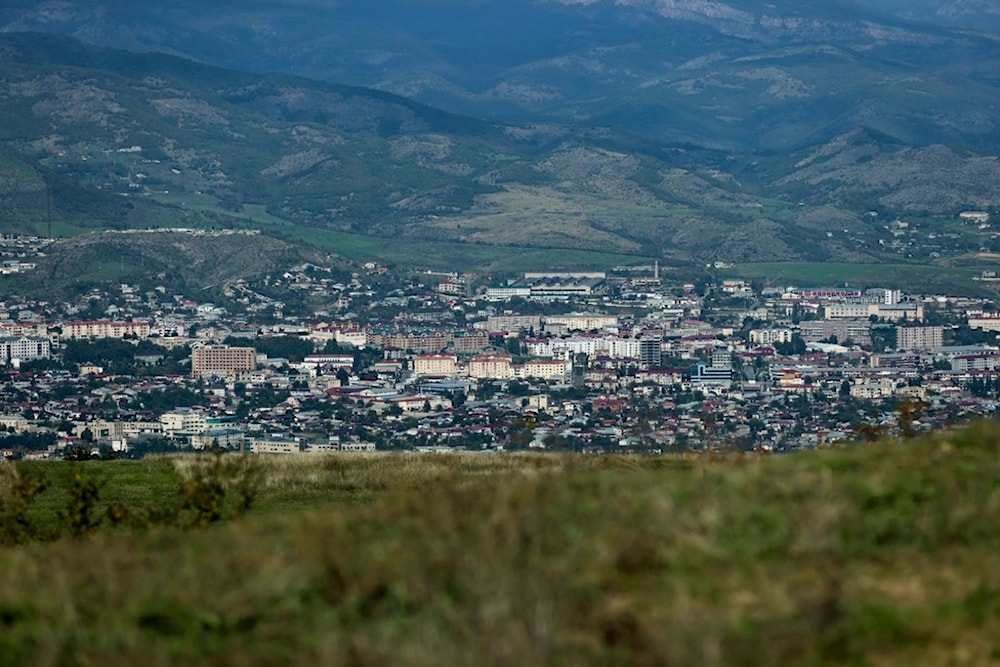Armenia ready to sign peace treaty with Azerbaijan
Armenia is prepared to enter into a peace treaty with Azerbaijan either by the end of this year or shortly after, according to Armen Grigoryan, the Secretary of the Armenian Security Council.
-

A view of Khankendi, Azerbaijan on Tuesday, Oct. 3, 2023 which is also known as Stepanakert to Armenians. (AP)
Armenia is prepared to enter into a peace treaty with Azerbaijan either by the end of this year or shortly after, according to Armen Grigoryan, the Secretary of the Armenian Security Council.
The commitment to normalize relations and pursue a peace agreement grounded in sovereignty and territorial integrity was reaffirmed by Yerevan and Baku in a joint statement issued on Thursday. Additionally, the nations reached an agreement to exchange 32 detained Armenian military personnel for two Azerbaijani soldiers.
In an interview with Public TV of Armenia on Saturday, Grigoryan expressed Armenia's readiness to advance the peace process. "Armenia is ready to advance the peace process...Of course, it seems difficult in December, but we are ready to sign an agreement even before the end of December, and if it doesn't work out, we are ready to sign a peace deal in the shortest time possible," he said.
Grigoryan highlighted the unprecedented nature of the recent joint statement, emphasizing that it resulted from direct negotiations between the South Caucasus nations without any mediator involved.
He suggested that a swift resolution was plausible, with the possibility of finalizing the process within "roughly a month if there is political will".
He also noted that the agreement's text would be 70% prepared if Azerbaijan were to accept the three principles advocated by Armenia. These principles encompass mutual recognition of territorial integrity, acknowledgment of the 1991 Alma-Ata Declaration as a political foundation for border demarcation, and the establishment of regional communications.
One step forward
This signifies an improvement in the Armenia-Azerbaijan conflict. In October, Azerbaijan's President Ilham Aliyev turned down a European meeting in Spain with Armenia's Prime Minister Nikol Pashinyan, due to European support for Yerevan.
In response to the decision, Pashinyan stressed that despite this setback, he is still keen on attending the European Political Community (EPC) summit in Granada.
Pashinyan later said he would still go to the summit of the European Political Community (EPC) in Granada, saying it was a "shame" that the two leaders would not be able to sign a "turning point document" on the Nagorno-Karabakh region.
Mediated by France, Germany, and the European Council, Aliyev and Pashinyan were set to meet on the sidelines of the European summit, however, the Azeri official underscored that "Azerbaijan did not consider it necessary to participate in negotiations in this format," stressing that "pro-Armenian statements by French officials... and statements on the supply of weapons and ammunition (to Yerevan), on military cooperation," had been behind Aliyev's decision to refuse to attend the talks.
Read more: 28,120 people forcibly displaced from Nagorno-Karabakh says government

 3 Min Read
3 Min Read








